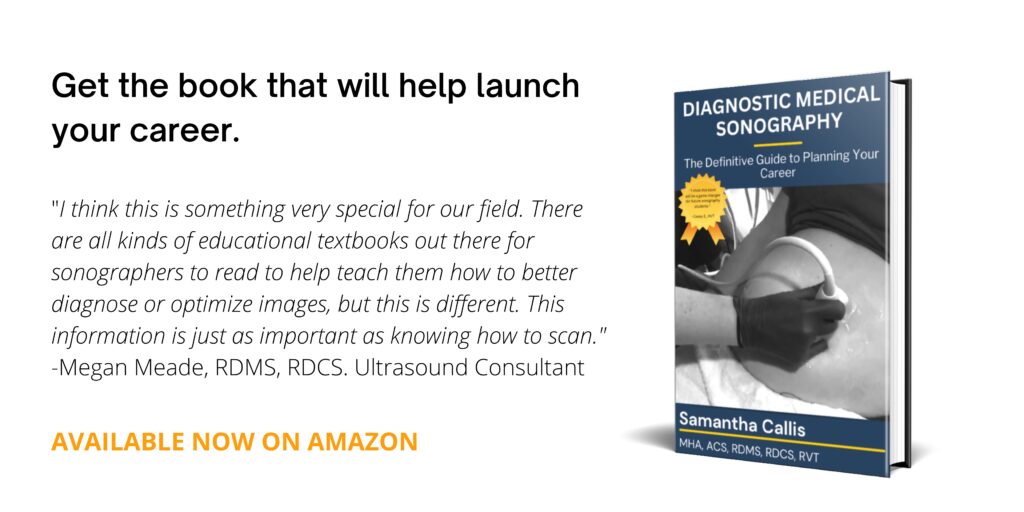Nuclear medicine technologists are highly trained and specialized medical imaging professionals. They work closely with physicians and patients, using radioactive chemical compounds and specialized equipment to help diagnose and treat disease. The Society of Nuclear Medicine states “…nuclear medicine uniquely provides information about both the structure and function of virtually every major organ system within the body”.
What is Nuclear Medicine?
Nuclear medicine is a non-invasive imaging technique used to diagnose disease and other complications inside the body. Nuclear medicine technologists administer radiopharmaceuticals, which help identify abnormal areas in the body. The techs employ cameras that are able to detect the pharmaceutical compounds and capture images of the organs or internal structures (like bones or tissues) of focus.
Nuclear medicine technology detects disease or complications based on metabolic or biological changes rather than anatomical or physical changes. In therapeutic cases, a nuclear medicine tech sends appropriate radiopharmaceuticals directly to an infected or diseased organ, tissue or other internal structure.
How to Become a Nuclear Medicine Technologist
- Complete all prerequisites, which may include college level math, English, and science.
- If the opportunity is available, job shadow a nuclear medicine tech in a facility.
- Complete and Associate or Bachelor’s degree in nuclear medicine technology from an accredited program
- If you already have a degree in a health field and wish to become a nuclear medicine technologist, then you can often complete a certificate program.
- Upon completion of a NMT program, take the certification exams from the Nuclear Medicine Technology Certification Board or the American Registry of Radiologic Technologists (ARRT).
The Technologist’s Role
- Explain the upcoming procedure to patients and answer questions.
- Help patient feel at ease and provide comfort.
- Prepare and administer radioactive compounds.
- Perform imaging procedure on patient.
- Provide and capture images for referring physician.
- Monitor patient’s condition during procedure.
Patient Care
Patient care is an essential part of a nuclear medicine technologist’s job description. They must practice compassion as they explain the procedures to their patients, answering any questions they may have. Although the radiopharmaceutical doses are generally small, the nuclear medicine tech must always ensure safety when preparing the chemical cocktails, ensuring patients and they are not overexposed.
Nuclear Medicine Technologist Schools
Nuclear medicine techs (NMTs) must hold at least an Associate’s degree in nuclear medicine technology. Most programs are full time programs, and take 18-24 months to complete. The NMT education program will combine both classroom and clinical coursework. Program completion times may vary depending on specific program requirements.
Choosing an Accredited Program
Before enrolling in a program, be sure that it has been accredited by the Joint Review Committee on Educational Programs in Nuclear Medicine Technology (JRCNMT). This is the only accrediting body accepted by the Nuclear Medicine Technology Certification Board (NMTCB). Professional certification is not required by law, but the majority of employers will required their NMTs to be certified by the NMTCB.
Find a nuclear medicine technologist program accredited by the JRCNMT using their Find a Program tool.
Nuclear medicine tech coursework will generally include courses such as the following:
- Nuclear medicine mathematics
- Diagnostic Imaging
- Radiation Safety
- Computed Tomography Imaging
- Nuclear Cardiology Imaging
- Ethics and Humanities
Prerequisites:
Some programs will require nuclear medicine job shadow hours in an imaging department prior to enrollment. They may also require successful completion of college level courses, such as college algebra, chemistry, and anatomy and physiology. Candidates should have a strong background in math and science.
Nuclear Medicine Technologist Schools Online
The JRCNMT has accredited some fully online distance learning programs for nuclear medicine techs. In these programs, coursework is completed online, while clinicals and practicums are done at an approved affiliate lab. If you’re considering completing an online nuclear medicine tech program, be sure it is accredited and that it includes in person labs and clinical experience.
Avoid these 5 common mistakes that online students make.
Nuclear Medicine Technologist Salary
NMTs are among the highest paid of the medical imaging professionals. The national median pay was $85,300 per year in 2022, or $41.01 an hour (BLS). The starting salary for nuclear medicine techs is up to about $64,000, while those in the top 90% can earn over $100,000 a year. Salary and employment figures are based on a national average and may vary by location.
Most NMT’s work full time in hospital settings. Not all industries pay the same. Below are some of the top paying employers for nuclear medicine techs:
| Industry | 2022 National Median Salary |
|---|---|
| Outpatient Care Centers | $126,580 |
| Specialty Hospitals | $95,510 |
| General Hospitals | $88,720 |
| Doctor’s Offices | $89,440 |
| Medical and Diagnostic Labs | $87,800 |
Job Outlook for Nuclear Medicine Techs
In 2021, there were approximately 18,900 working NMT’s in the country. By 2031, that number is expected to grow by 2%, adding about 300 jobs. (BLS.gov).
NMT’s are also able to increase their employability by adding specialty certificates in Computed Tomography (CT), nuclear cardiology, or positron emission tomography (PET). Most certificates are two to 4 semester programs.
Additional Resources:
Society of Nuclear Medicine and Molecular Imaging (SNMMI)
Bureau of Labor Statistics
Nuclear Medicine Technology Certification Board
ARRT
JRCNMT

